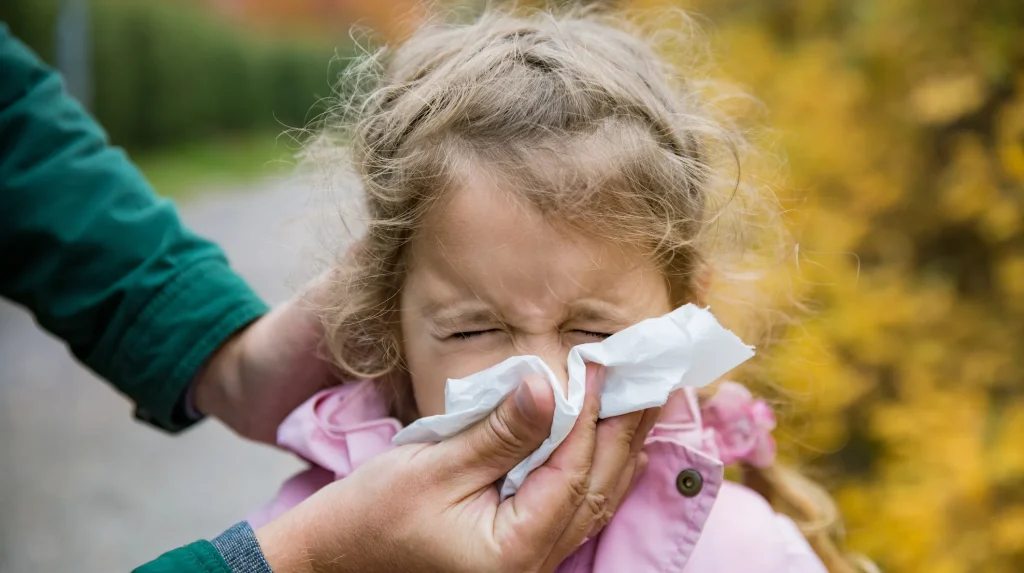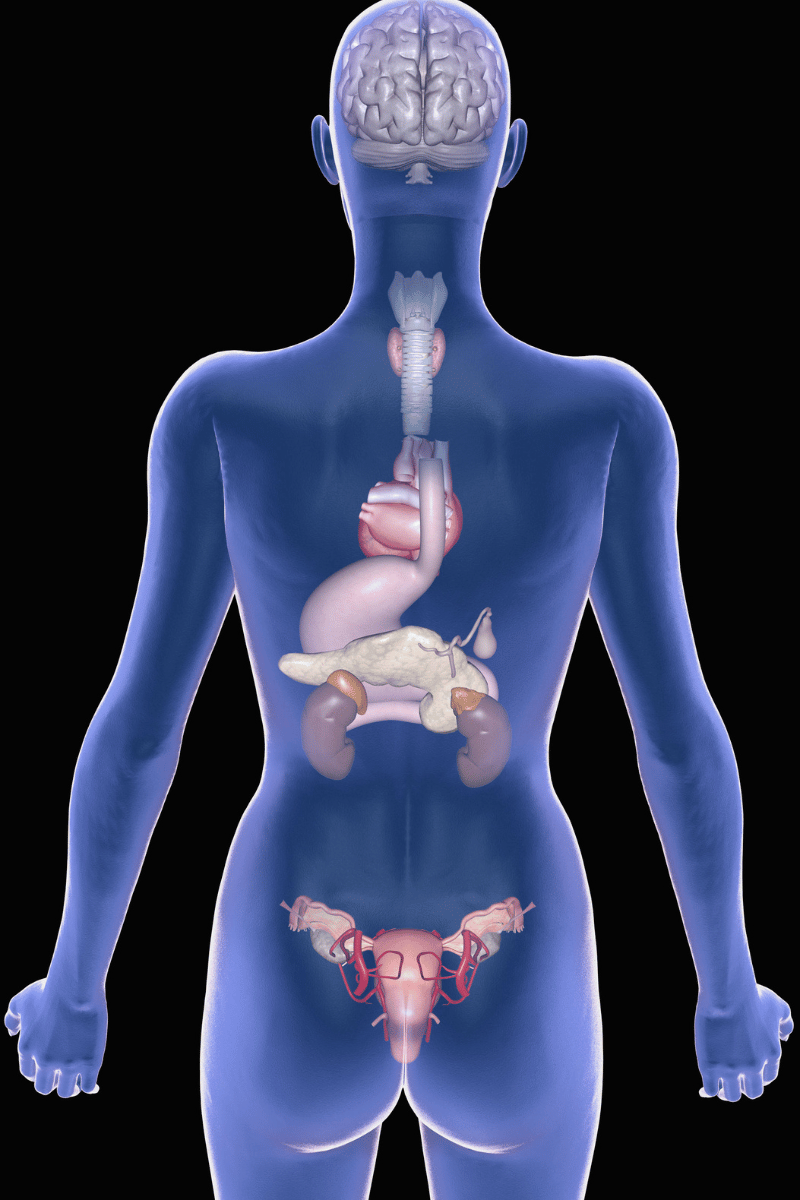Cold and Flu Viruses | How to Treat at Home | Natural Remedies
A how to guide for treating cold and flu viruses at home from a natural minded nurse.
What are viruses?
A virus is an infectious agent (germ or pathogen) of microscopic size with a simple composition that can only multiply in living cells of humans, animals, or plants. These pathogens can make you sick with or without symptoms and have the potential to make you extremely sick in some cases.
A virus particle is made of genetic material from inside a protein shell, or capsid. Some viruses also have an envelope. Viruses can’t reproduce without a host. The genetic material, or genome, of a virus may consist of single-stranded or double-stranded DNA or RNA and may be linear or circular in form.

Some of the most common viral infections are:
- Respiratory illnesses
- Diarrhea and vomiting
- Sexually transmitted infections (STIs)
- Skin conditions
Some common types of viruses are:
- Influenza viruses (influenza A and B)
- Human herpesviruses (genital herpes, chickenpox, shingles, Epstein-Barr and cytomegalovirus (CMV))
- Coronavirus.
- Human papillomaviruses (some HPV)
- Enteroviruses (polio and hand, foot and mouth disease)
- Flaviviruses (Zika, West Nile, dengue fever and yellow fever)
- Orthopoxviruses ( Mpox and smallpox)
- Hepatitis viruses (Hepatitis A, B and C)
How do viruses work?
Viruses enter your body through your mucus membranes: nose, eyes, mouth, penis, vagina, anus and breaks in your skin (integumentary system). They can replicate very fast and sometimes faster than the hosts own cells.
Stages of a virus
- Attachment
- Entry
- Replication
- Assembly
- Release
Attachment and entry are referring to how the virus enters your body/cells. There are 3 ways in which this can happen. receptor binding, direct fusion and some inject part of themselves while the entire virus itself does not actually enter the cell.
Replication is how the virus multiplies and reproduces within your body. Once the virus or its genetic material is inside of a cell, it uses either a lytic cycle or lysogenic cycle to reproduce (some use both).
The lytic cycle is where the virus uses your bodies cell’s mechanisms to make more copies of itself, replication. Pieces of the virus assemble, encasing the genetic material in the capsid. Viruses make many copies of themselves like this. Eventually, there are so many copies of the virus inside the cell that it bursts. Those virions can now go and infect more cells.

Flu vs Cold
Different viruses cause colds and the flu. Both are contagious and easily spread.
Flu (influenza) virus
The influenza virus has many versions. The two most common types tested for are influenza A and B. Symptoms of influenza viruses often include fever, head and body aches, coughing and a stuffy or runny nose. Influenza C is not very common nor seasonal as A and B typically are.
H1N1 (“swine flu”) and bird flu are both subtypes of influenza A.
The flu is the most common infectious disease every year. It’s estimated that about 20 to 40 million people in the U.S. catch the flu every year.

Symptoms of the flu usually come on quickly, and can include:
- Fever.
- Chills.
- Body aches.
- Cough.
- Headache.
- Sore throat.
- Runny or stuffy nose (congestion).
- Tiredness or feeling run down.
- Diarrhea or vomiting (usually only in kids).
You may not have all of these symptoms.
Cold viruses
The common cold is an illness affecting your nose and throat, also known as upper respiratory infections. The cold is from a contagious virus for which there are more than 200 types. The most common cold virus is the rhinovirus.
Colds spread easily from one person to another. For you to become infected, the virus has to get to one of your mucous membranes — the moist lining of your nostrils, eyes or mouth. This can happen when you touch a surface or breathe moist air that contains the cold virus.
Most adults will have 2-3 colds a year while children and infants may have more. Colds generally last for 7-10 days.
Most often, symptoms start 1 to 3 days after someone has been exposed to a cold virus. Symptoms may vary. They can include:
- Runny or stuffy nose.
- Sore or scratchy throat.
- Cough.
- Sneezing.
- Generally feeling unwell.
- Slight body aches or a mild headache.
- Low-grade fever.
What should you eat and drink while sick?
The most important thing to do while sick is to stay hydrated. The best thing to drink when sick is a good quality bone broth.
Typically, when you’re sick, you’re not eating very much. Your body still requires nutrients in order to fight off the illness. Drinking a high-quality bone broth will help not only help with hydration but with adding important nutrients and fats to aid in supporting your immune system.
If you are able to eat you want to stay away from high sugar, dairy and processed foods. Eating whole foods is what your body will be able to digest best. Foods such as whole fruits and vegetables, meat and whole grains are best.
If you eat high sugar foods, this can cause inflammation and inhibit your bodies response to fighting off the illness. Dairy products can increase your mucus production. Increased mucus can potentially lead into secondary infections such as pneumonia or a sinus infection. Eating processed foods can lead to inflammation as well and also make your body work harder at expelling the unnatural ingredients. It can also lead again to more inflammation.
Supplements and herbs
In an ideal world, we would be getting every nutrient our bodies need from our food. Unfortunately, that is not the case in our current culture. In order to bridge this gap of nutrients and to support our immune system, we should be taking daily supplements. When we do succumb to an illness, we should increase certain ones and add in new ones depending upon the ailment.

Daily supplements include:
- Multivitamin/Prenatal
- Vitamin D (Cholecalciferol)
- Magnesium glycinate
- Calcium
- B Vitamins (methylated)
Supplements to have on hand for illness:
- Zinc
- Vitamin C
- Elderberry Syrup
- Activated charcoal
- Quercetin (anti-inflammatory)

When is it appropriate to treat my symptoms at home?
For the typical cold and flu viruses, most people should be able to stay home and treat their symptoms themselves.
I have seen so many people go into the doctor’s office, urgent cares and emergency rooms just to overwhelm the system. There is no antibiotic that can cure a viral infection. Antibiotics are for bacterial infections such as pneumonia and a sinus infection, which can require treatment if you’re not supporting your body’s immune system. So, unless you’re having a secondary infection or your symptoms are severe and causing symptoms like difficulty breathing, you do not need to be seen by a healthcare provider.
If you’re an otherwise healthy person, your body should be able to fight off the virus well enough. If you’re supporting your body through this illness, you should be able to prevent any secondary infections from occurring.
Who should NOT treat at home
A person with underlying conditions such as HIV or diabetes, will need to monitor their symptoms much more closely. A person with diabetes will need to check their blood sugars more often and potentially use more insulin while sick. If their blood sugar was to get even a little too high (hyperglycemia), it can aid in the development of a secondary infection.
Items to have on hand
Treating your cold and flu at home is easiest if you have items stocked in your home and ready for the next time you’re sick. We all get sick at some point. It is good practice to have things on hand. Especially when you’re sick and not able to get to the store easily.
We are a large family of 7. I’m recommending items based off of the assumption that children may be in the home.
The top items we always have on hand are:
- Elderberry syrup
- Lung and Chest Congestion Syrup
- Cough and Sore Throat Syrup
- Nebulizer and saline
- Colloidal silver
- Vitamin C powder
- Vitamin D (Cholecalciferol)
- Activated charcoal
- Nasal rinse with saline
- dōTERRA Breathe Essential Oil
- doTERRA On Guard Essential Oil
- Bone broth
When you’re sick, you’re generally laying down and not moving around nearly as much as before. It is very important to continue to move around, if possible, to help prevent pneumonia or even blood clots from forming while sedentary. Our bodies are designed to move. The fluid in our lungs needs to be moved around. Coughing is a natural process to assist in this to help prevent infection.
Another thing to consider is making sure to brush your teeth at least twice a day. The more the better to help prevent excess bacteria potentially going into your lungs and causing an infection (pneumonia). When someone is in the hospital, oral care is very important for this reason.

Fevers
Fevers are our body’s defense mechanism and should only be monitored. We do not generally give ibuprofen or acetaminophen for fevers unless the person with the fever is lethargic or otherwise unable to eat or drink because of the fever.
If you would like to naturally bring down a fever, you can do a warm tepid bath with Epsom salts. Another option is to make sure they’re not under heavy covers or clothing. Someone with a fever should only be in light weight clothing and possibly a sheet. Anything more than this can increase the fever. I have gone into many patient rooms and stripped covers off of them to help bring down their temperature. It works quickly and very well generally.
When should you seek medical care?
There are of course necessary reasons to seek a higher level of care. As mentioned already, if your symptoms worsen into a possible secondary infection like pneumonia, you may need to be seen by a provider to determine if antibiotics are now necessary.
Remember that breathing is very important and if you feel that your breathing may be compromised, seek medical attention immediately.
What remedies have you tried in the past?
Let me know what you have tried in the past in the comments below. How did they work for you?

Check out these most recent posts!
Elderberry Syrup | A Busy Moms How to Guide
Herbal Oil Guide | How to Make an Oil from Herbs
Home Birth | Top 5 Reasons to Choose a Natural Birth
Positive Home Birth Story | Birth of a Large Baby!
Disclosure
I am not a doctor and cannot advise you on how to treat your unique and specific medical conditions(s). Please discuss with your doctor if you have any concerns.








From start to finish, your content is simply amazing. You have a talent for making complex topics easy to understand and I always come away with valuable insights.
I just wanted to take a moment to say how much I appreciate your blog posts. They’re always well-written, informative, and keep me coming back for more. Keep up the great work!
Keep up the amazing work! Can’t wait to see what you have in store for us next.